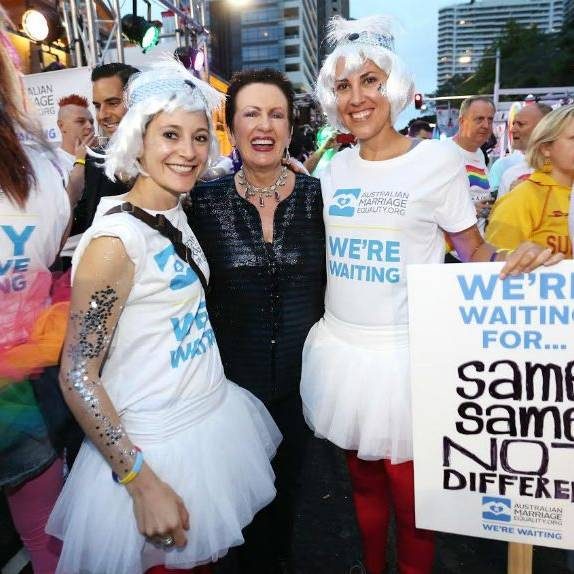
Marriage Equality could become a reality for Australians, with Tasmania becoming the first state to pass a Marriage Equality bill through the House of Assembly.
Tasmania’s reputation as a modern, enlightened and socially progressive state has been strengthened with marriage equality laws through the House of Assembly.
The Premier, Lara Giddings, said Tasmania had sent a strong message to the rest of the country that discrimination based on sexual orientation should end. “I am proud to lead a state which has come a long way in the eyes of the Nation,” Ms Giddings said. “Not long ago, Tasmania was scorned and ridiculed for having laws that outlawed homosexuality.
“Today, we have taken an important step towards toppling the last pillar of discrimination against same-sex couples – a step that I believe other states will inevitably follow.”
Ms Giddings said constitutional law experts such as George Williams believed that the Tasmanian Bill was robust enough to withstand potential challenge in the High Court.
“If it was not for governments being willing to challenge norms of the day through law reform, we may not have seen the enactment of Native Title or the more recent decision about the plain packaging of cigarettes.
“Until, if ever, the Commonwealth Parliament decides to legislate for same-sex marriage, I believe our state law, when enacted, will be valid and provide a robust framework for same-sex marriage and remain in full force and effect in Tasmania.”
Ms Giddings said the Same-Sex Marriage Act 2012 is not about diluting or damaging the concept of marriage.
“I respect there are people with strong-held religious views on marriage.”However, I do not believe that the personal moral disapproval that some individuals may feel towards same-sex marriage is a valid reason to allow discrimination to continue in the twenty-first century. This issue is about equality and fairness.
“While there were significant advancements in civil rights during the twentieth century including the removal of discrimination based on race, religion or gender, it is incumbent upon us as twenty-first-century legislators to remove the last act of discrimination.”
Ms Giddings said she fundamentally believed that the time for reform in Tasmania had come. “It should also be remembered that this concept is not new – marriage equality has been achieved in 12 countries across four continents, including Canada, Iceland, Sweden, Norway, the Netherlands, Spain, South Africa, Portugal and Argentina, as well as in several states of the United States of America.
“New Zealand, France, Finland, Nepal, Slovenia, Paraguay, the United Kingdom, Scotland, Washington State and both the ACT and South Australia closer to home are likely to move towards marriage equality shortly.”
Ms Giddings said she looked forward to hearing the debate on the legislation in the Upper House. “I know that Legislative Council members will give this issue careful consideration. Upper House members helped decriminalise homosexuality in 1997, and since then, they have supported a long list of important social reforms – including surrogacy just this week. I hope members will support this Bill so we can finally close the book on discrimination against same-sex couples.”






